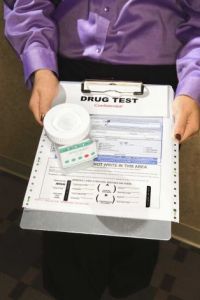The Basics of Employer Drug Testing
July 8, 2016

Drug testing is the norm these days in American workplaces because alcohol and drug abuse is one of the most serious problems affecting employers today. The costs alone are staggering – more than $100 billion a year in accidents, lost productivity and related
problems.
In 2013 the National Survey on Drug Use and Health issued a staggering report that 9.1% of full time adults aged 18 or older are current illicit drug users. For those employed part-time, 13.7% are current illicit drug users. This means that of the 22.4 million current illicit drug users aged 18 or older, 15.4 million (68.9%) are either employed full or part time.
Employers often require drug testing as a condition of employment. If a company notifies job applicants of its pre-employment drug test, it reduces the number of candidates who apply with a pre-existing drug or alcohol problem. In addition, employers also can conduct random drug tests among its employees if it has been included in the employee handbook and communicated in advance to every employee.
Testing can involve the analysis of saliva, urine, hair or blood to test for illegal substances; the most widely used method is urine.
Most employees do not abuse alcohol or drugs, and do not want to work side-by-side with those who do. Drug abuse in the workplace is not a labor-management problem; it is a common-concern of both employees and their employers.
Does America really have a drug problem?
According to Centers for Disease Control and Prevention, more people died from drug overdoses in 2014 than in any year on record. The majority of drug overdose deaths (more than six out of ten) involve an opioid. And since 1999, the rate of overdose deaths involving opioids (including prescription opioid pain relievers and heroin) nearly quadrupled. From 2000 to 2014, nearly half a million people died from drug overdoses. 78 Americans die every day from an opioid overdose!
Benefits of employer drug testing: Companies have learned that drug testing….
- Improves safety
- Reduces employee turnover
- Reduces absenteeism, tardiness, sick leave and personal time off
- Reinforces the company’s “no-use” policies
- Establishes grounds for discipline or firing
- Convinces casual users that the cost of usage is too high
- Reduces workers’ compensation costs
- Improves customer satisfaction
- Improves employee morale and motivation
- Improves the company’s community image
Employers can drug testing for the following reasons:
Random – These are just what the word means – random. They are allowed and enforceable if the employees have been forewarned.
For cause testing – If an employer suspects an employee is under the influence of drugs or alcohol or has an addiction, the company can require that the employee undergo drug testing.
Post- accident testing – Tests of an employee can be mandated after an accident.
Pre-employment – An employee can make a condition of employment be based on a negative drug test.
What substances are tested for?
Employers drug test for a wide array of controlled substances such as cocaine, amphetamines, PCP, codeine, morphine, heroin and marijuana. However, the typical five or 10 panel drug test does not screen for synthetic opiates such as hydrocodone, oxycodone or hydromorphone which are found in common prescriptions such as Vicodin, Percocet, Percodan, OxyContin and Diluadid. Employers can and should request that these opiates be included in the panel. Furthermore, popular street or designer drugs such as bath salts and K2 (Spice) also can be included in a drug panel by some select drug testing medical practices and labs. Before selecting a drug testing clinic or lab, make sure to inquire as to what exactly is screened in the drug panel.
Selecting the most qualified drug testing practice or lab:
Employers should determine what type of testing is needed and carefully search for a clinic or lab that can fulfill the company’s requirements. Specifically, ask if they are a National Institute of Drug Abuse (NIDA) approved lab for all drug testing services and have a medical review officer on site. Also it is important to determine if the practice or lab has staff which are certified to perform the Department of Transportation drug tests.
Also determine if they can perform the:
- Non-DOT drug tests
- Rapid (same day) drug tests
- Hair drug tests
- Breath alcohol tests
- Synthetic opiates drug tests
- Designer or street drug tests
- Special drug panels

Summary:
The best advice is that each and every company should:
- Implement a drug testing policy
- Include detailed information in the employee handbook which has been reviewed by the company’s legal counsel and HR department
- Have all employees sign a document testifying that they have been made aware of the policy
- Have the employee sign a consent form any time the policy is utilized
- Place a disclaimer in the company employment application indicating that the company utilizes an employee drug testing program as a condition of employment and during employment.




